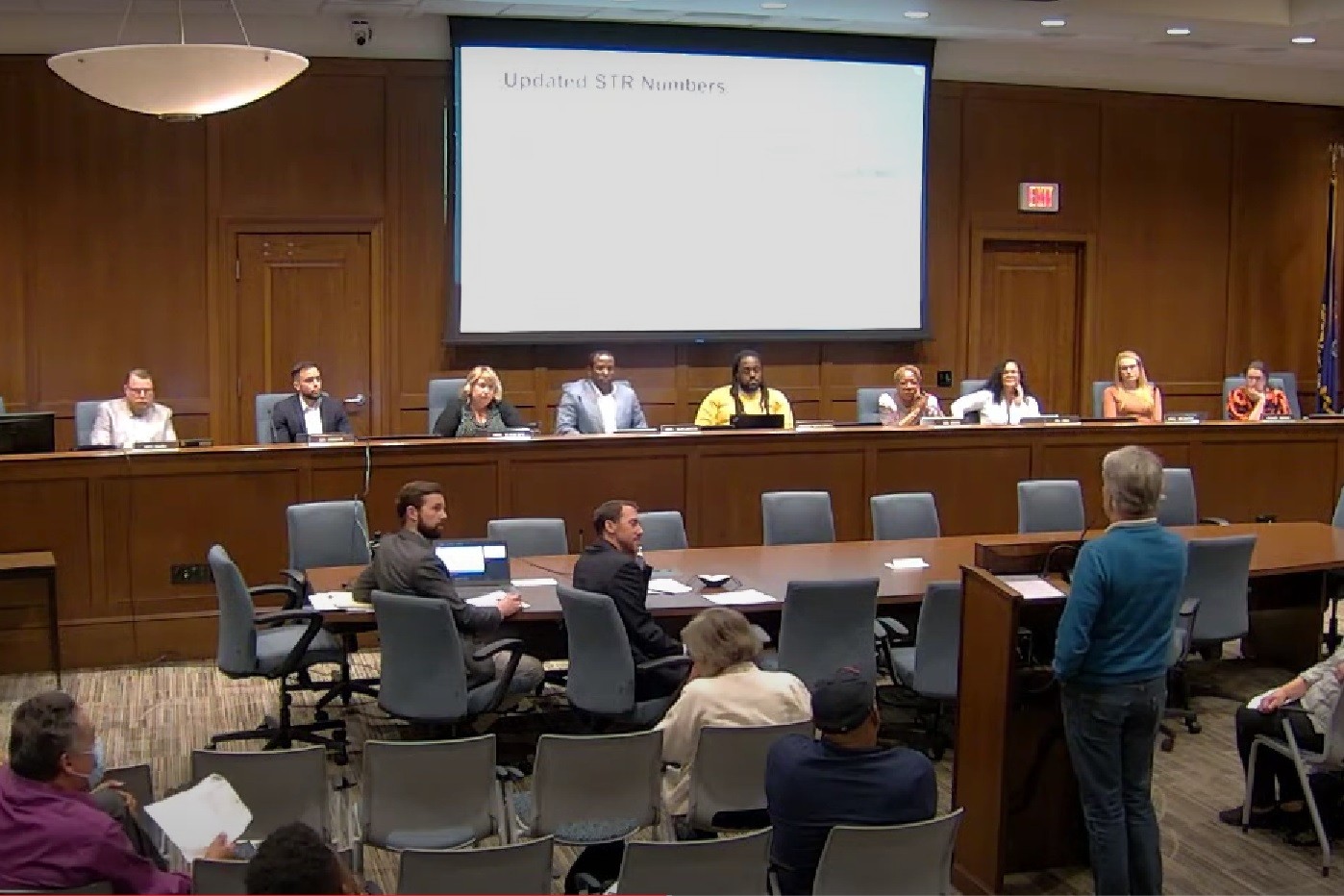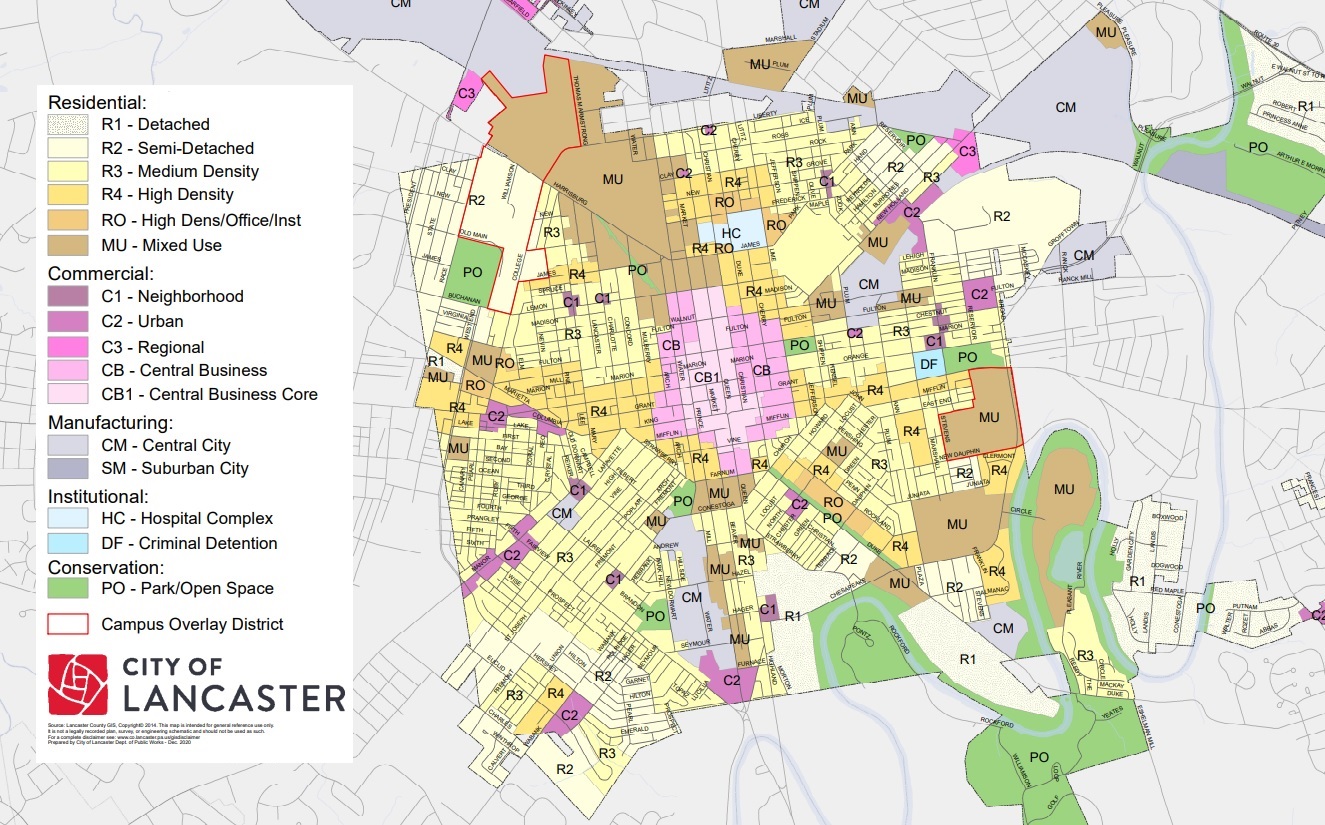
After hearing an hour of impassioned public comment, pro and con, on Tuesday evening, Lancaster's City Council voted unanimously to restrict future Airbnb-style "short-term rentals," or STRs, from locating in residential neighborhoods.
Related: Click here and here for coverage of City Council's previous meetings on STRs.
The topic drew a near-capacity crowd to council chambers at City Hall. Homeowners said unregulated multi-unit STRs are pushing up housing prices while diminishing the ambience and quality of life in their neighborhoods. They cited news articles and reports documenting a negative "Airbnb effect" and accounts from cities of neighborhoods turning into "ghost towns" as STRs proliferate, becoming more like open-air hotels than true communities.
"Our fear was that we would be overrun by short-term rentals," said Molly McKitterick, a resident of the 100 block of South Duke Street.
William Puffer, of the 300 block of Church Street, said the ordinance "has hit on all cylinders," striking a balance that allows STRs in appropriate areas while protecting neighborhoods.
Local STR entrepreneurs, conversely, described the pride they take fixing up properties and nurturing the city's hospitality and tourism industry. They told of pouring money, sweat equity and heart into acquiring and renovating properties that they planned to put on the STR market shortly — investments that will be for naught if they're not allowed to operate.
"I just feel like the door is being slammed in our face on this dream," said Colleen Sohl, who said she and her father have spent hundreds of thousands of dollars buying and renovating a property they were planning to open as an STR on Pine Street.
Christopher Maul said he spent 1 1/2 years renovating a house near Lancaster General Hospital to operate as an STR for as part of his retirement plan. Laura Garvey and her husband are doing the same at a property on West King Street: It's enhancing the neighborhood, she said, adding that she loves welcoming visitors to Lancaster.
"We're invested in our neighborhood," she said.
The new regulations
In the ordinance passed Tuesday, the city distinguishes STRs from "homestays" — situations in which an on-site homeowner rents a bedroom or two. Homestays remain permitted in the city's two largest residential zones, R3 and R4.
The city defines an STR as a single-family home rented as a single unit. Multi-unit STRs aren't allowed, though residents say the city has failed to crack down on them.
STRs are essentially commercial operations, city Chief Planner Douglas Smith said, and should be treated accordingly. Going forward, they'll be allowed downtown and in mixed-use and commercial areas, but not in R3 or R4. To operate legally, they must obtain rental permits and meet other criteria.
STRs operating legally under current regulations must be grandfathered in. Using the online service Granicus, which combs Airbnb, VRBO and other online listing services, the city has found 211 STRs. Of those, 41 have registered and are in good standing, Director of Community Planning & Economic Development Chris Delfs said.
Additionally, the city offered a grace period for STRs that hadn't obtained all their paperwork but were otherwise compliant to file applications. That period ended Tuesday, and the city received 54 applications, Delfs said.
That leaves more than 100 of the 211 identified STRs out of compliance under the new framework. The city fully intends to shut down illegal operations, sending notices of violation and taking property owners to court if needed, Delfs and Smith said. That includes houses operating as multi-unit STRs, they said.
Zoning violations can result in fines of $500 per day, plus court costs, Smith said.
In some cases, an entrepreneur might be able to obtain a variance from the Zoning Hearing Board for an STR in a residential area. In general, the city would frown on such applications, Smith said, noting that if neighbors were supportive, that would weigh in an applicants' favor.
Several members of the public questioned whether the ordinance had been thoroughly thought out and vetted and urged City Council to defer action. Smith said it was developed over multiple meetings with the Planning Commission, and represents the administration's best attempt to address the STR issue.
That said, there's no reason further changes couldn't be introduced down the road if problems arise or opportunities for improvement are seen, he said.
That includes suggestions made at previous meetings, such as limiting the number of STR licenses or setting a maximum density limit. The city needs to do more research to determine if such approaches are feasible and would pass legal muster, Smith said.






